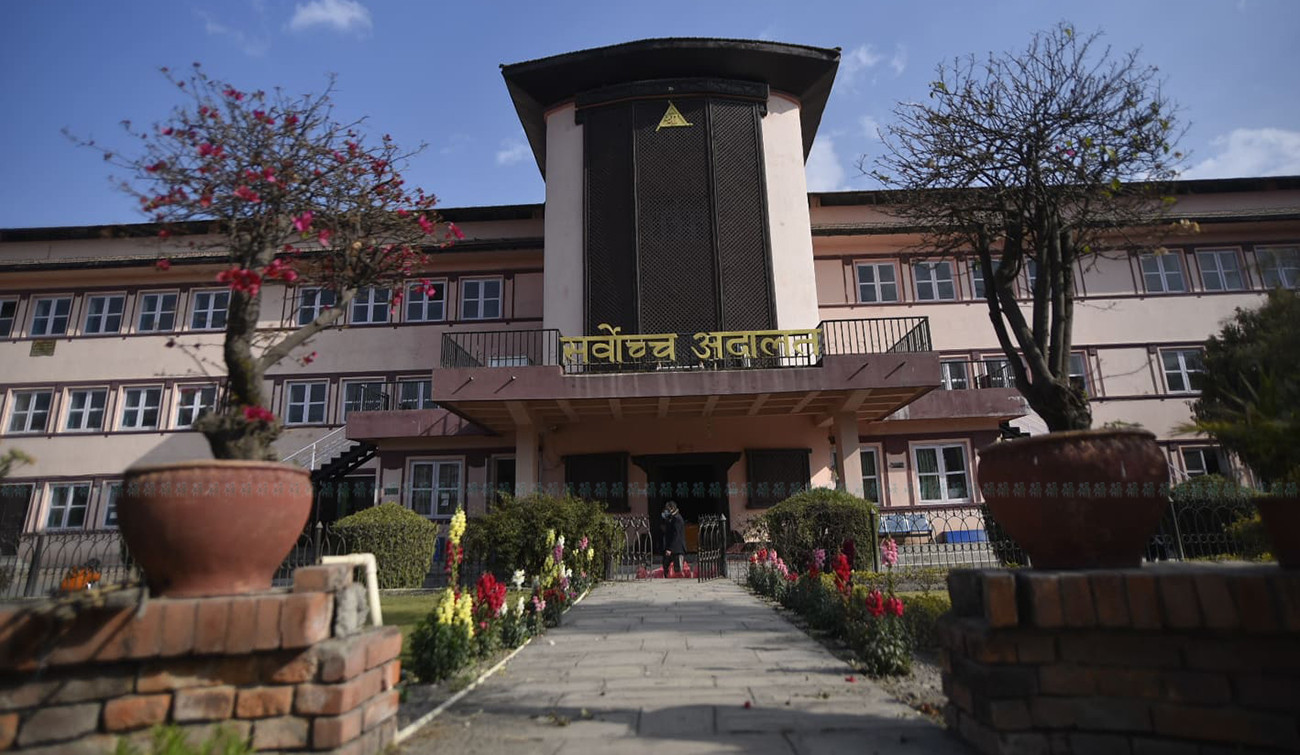The Supreme Court has issued an interim order to not suspend the ride-sharing regulations introduced by the Gandaki government.
The court issued the order on Tuesday in a writ petition that named 13 entities, including the Office of the Prime Minister and Council of Ministers (OPMCM), the governments of all seven provinces, and the Federation of Nepalese National Transport Entrepreneurs (FNNTE), as defendants.
The order was issued by a joint bench of Supreme Court Justices Til Prasad Shrestha and Mahesh Sharma Paudel.
With the order issued in favor of the ride-sharing regulations introduced by the Gandaki government, the court has granted legal recognition to the regulations, according to Gandaki’s Chief Attorney Chiranjeevi Sharma.
"The Supreme Court has issued an interim order to not halt the ride-sharing regulations. The order also granted legal recognition to the regulations introduced by the provincial government," he told Setopati. "A directive order has been issued to the Federation of Nepalese National Transport Entrepreneurs to not disrupt an essential service such as transport."
On June 12, advocate Jay Prasad Paudel, on behalf of the Consumer Rights Protection Forum, filed a writ petition at the Supreme Court, arguing against the suspension of the ride-sharing regulations and naming the OPMCM, provincial governments, FNNTE, and others as defendants. Following a hearing on June 15, the court summoned both parties for discussions on June 24 (Tuesday).
Chief Attorney Sharma said that the order from the court is significant as it protects the constitutional rights of the provinces and upholds the ride-sharing regulations introduced by the Gandaki government in compliance with the law.
After the Gandaki government introduced the ride-sharing regulations, public transport entrepreneurs launched protests and halted public transport services.
The federal government held talks with the protesting transport entrepreneurs and wrote to the Gandaki government asking it to suspend the regulations for a month. Following the correspondence, the Gandaki Cabinet meeting also decided to halt the implementation of the regulations for a month.
According to Schedule 6 of the Constitution, transport management falls under the exclusive authority of provincial governments. The federal government’s letter to the provincial government to suspend the ride-sharing regulations was criticized as being against federalism and the Constitution.
Gandaki Chief Minister Surendra Raj Pandey had said that the ride-sharing regulations would be implemented after one month.
With the Supreme Court’s order, the province would not face pressure from any party to halt the ride-sharing regulations now, said Chief Attorney Sharma.
"The implementation of the provincial government’s exclusive authority as mentioned in the Constitution will not face obstruction from any quarter now," he said. "The court protected the province’s rights."

